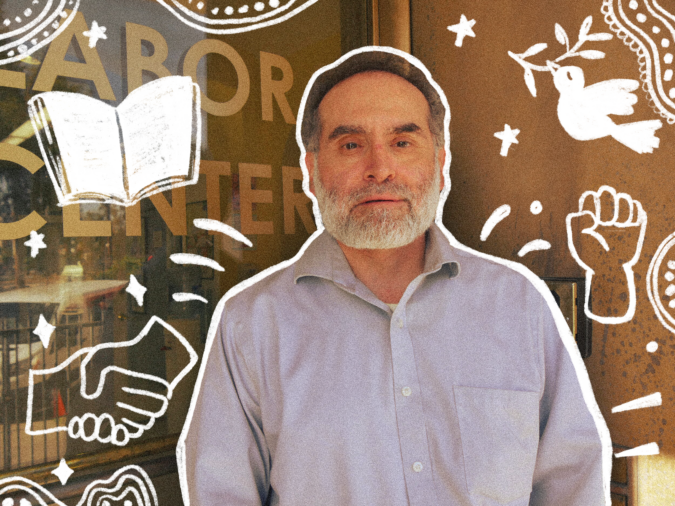Q&A: Victor Narro discusses new kindness study
Breanna Diaz | June 6, 2022
Kindness goes a long way in all aspects of life, including activism and education.
Victor Narro and Lou Marie Reyes examine the role of spirituality and self care in students’ lives in “Kindness Lessons: How Mindfulness and Spirituality Improve College Life, Student Activism and the Academic Experience.” The report, released on June 6, surveyed UCLA students in Labor Studies 177: Spirituality, Mindfulness, Self-Compassion and Social Justice Activism, to assess the impact the class has had on students’ wellbeing. Narro started the class in 2015 to address issues of stress and anxiety in activist students.
Among the findings, the report found students rated the class as “universally important” for all UCLA students. It also recommends UCLA provide workshops and classes that teach the UCLA community to care for their mental wellbeing.
Victor Narro sat down with IRLE to discuss the report. This interview has been edited for length and clarity.
Can you summarize the kindness study?
This class deepened my awareness of what’s happening not just to UCLA students, but throughout the country. The pandemic has been hard on students as well. So I wanted to create a documentation where I can go back to all the years I’ve taught this class… It’s a great model for assessing the experiences of the class, and how student evaluations and feedback can help us create documentation of the class. My purpose was to put something out for any audience that cares about this issue. It can lead to either further discussion, dialogue or maybe creation of new classes to help students when they go through stress and anxiety, or the challenges of being a student.
Why was it important to you to research this topic?
I have suffered from major burnout as an activist. 10 years ago, when you talked about burnout, people thought you just needed your two weeks and you could come back healthy, reenergized. We need that time away from work. But recently everybody is talking about it, and there’s been a lot of quick developments in the concept of burnout, because the World Health Organization identified workplace burnout as an occupational disease.
In activist work, we deal with trauma, with challenges, so the more we create awareness on burnout, the more we’re able to put into practice ways to deal with prevention, and the healthier we can be.
What role do you see mindfulness and spirituality play in activism?
If you look at social justice work throughout history, you can find moments of spiritual teachings that are integrated into activism. We always should look back and embrace those teachings, because the work for justice is a life choice and a lot of it comes from within.
It’s a life’s work which requires you to tap into what’s inside of you, your ability to give, to be compassionate. We should connect that way more in the work for justice. The more we’re grounded in kindness the more we’re grounded in acting with compassion towards one another and as we confront the injustices out there.
Are some of the lessons learned in the study also related more widely to the way the pandemic transforming our lives?
The pandemic really brought to the surface why these kinds of classes are needed. We all suffer from loss of loved ones and grieving. It’s part of life. In this kind of culture that we live in, we’re taught to avoid things that happen and the grief we suffer and just focus on the happy things. But the problem is, then you’re discounting the emotions that you should be embracing.
What do you think is the most important takeaway from the study for readers to know?
My class opens up the quest and enthusiasm for students to explore and find what it is that gives them sustenance and meaning. It’s not a one-size-fits-all, there’s something there for everyone. Desmond Tutu said we are all unique, each and every one of us is a masterpiece in the making. So go on to make your masterpiece.
Related: Read our Press Release to learn more about the study and hear from students who took the class.


